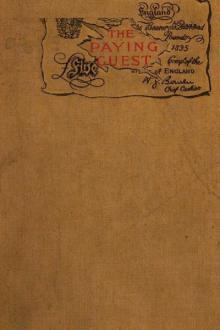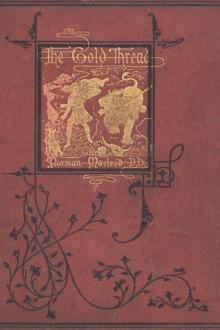g sent to prison, and that this inconvenient ex- soldier should be caged up somewhere.
"I am going down to Esher for the week-end. I think I may be able to do something."
The rolling forehead and the emphatic chin became more aggressive.
"I don't like this delay. Now, can you assure me--?"
Beal glanced at the clock.
"I'm sorry; I am due at my hospital at half-past two. But, tell me, what do you mean--exactly--by delay?"
"Nothing is being done."
"It is better that nothing should be done. I presume you are suggesting some form of restraint?"
"Certainly; in my brother's interest."
Beal showed him eyes that were not blind.
"The interest lies all the other way. You'll excuse me; can my maid ring you up a taxi? Before I go, I may as well remind you I don't want your brother fussed or frightened."
Reginald Stretton remained on the hearthrug looking at the opposite wall for something he had meant to say and had forgotten, and Beal left him t

ll boat would be overturned by the great waves. Then Grace ran to the boat, and seized an oar, for she could not bear to let the poor men die without trying to save them; and the father could not let his brave, daughter go alone, so he followed, and they rowed off.
It was hard work pulling against the strong sea, and several times the small boat was almost sunk. But at last it reached the wreck, and William Darling managed to land upon the rock, and with great care and skill helped the half-frozen people into the small boat. Then they were taken to the lighthouse, where Grace warmed and fed them, until the storm ceased, and they could return to their homes.
[Illustration: GRACE DARLING ROWS OUT TO THE WRECK]
=David Livingstone=
At one time many people believed that the middle of Africa was a sandy desert, where nothing could live but camels and ostriches. But they were mistaken. The great traveller, David Livingstone, journeyed into this unknown country, and he found that it w

aking lodgers.'
'No fear of that. This is evidently some well-to-do person. It's a very common arrangement nowadays, you know; they are called "paying guests." Of course I shouldn't dream of having anyone you didn't thoroughly like the look of.'
'Do you think,' asked Emmeline doubtfully, 'that we should quite do? "Well-connected family"--'
'My dear girl! Surely we have nothing to be ashamed of?'
'Of course not, Clarence. But--and "pleasant society." What about that?'
'Your society is pleasant enough, I hope,' answered Mumford, gracefully. 'And the Fentimans--'
This was the only family with whom they were intimate at Sutton. Nice people; a trifle sober, perhaps, and not in conspicuously flourishing circumstances; but perfectly presentable.
'I'm afraid--' murmured Emmeline, and stopped short. 'As you say,' she added presently, 'this is someone very well off. "Terms not so much a consideration"--'
'Well, I tell you what--there can be no harm in dro

peared, and then the Shorthorns. The business of dealing in north-country cattle came to be worthless. I bade Falkirk adieu, and turned my attention entirely to the rearing and fattening of cattle at home. I gave up the fascinating business of a lean-cattle jobber, seeing it was done for, and I have never regretted my resolution. The lean-cattle trade was difficult to manage, and in fact was most dangerous. Many a day, when attending Hallow Fair, I have got up by four or five o'clock in the morning, breakfasted, and not tasted food till six o'clock at night. The weather was so bad on one occasion that man and beast were up to the knees in mud. I had my beasts standing near one of the gates. Mr Archibald Skirving never got further than them; he bought forty, sent them away, and returned home. As he bade me good morning, he remarked, "I would not like to be in your place to-day."
I have stood many a bad Hallow Fair, but the worst was about twenty years ago. I never was so much in want of assistance from

ea, Sussex by the sea!
[Sidenote: MIDHURST]
If we are to begin our travels in Sussex with the best, then Midhurst is the starting point, for no other spot has so much to offer: a quiet country town, gabled and venerable, unmodernised and unambitious, with a river, a Tudor ruin, a park of deer, heather commons, immense woods, and the Downs only three miles distant. Moreover, Midhurst is also the centre of a very useful little railway system, which, having only a single line in each direction, while serving the traveller, never annoys him by disfiguring the country or letting loose upon it crowds of vandals. Single lines always mean thinly populated country. As a pedestrian poet has sung:--
My heart leaps up when I behold A single railway line; For then I know the wood and wold Are almost wholly mine.
And Midhurst being on no great high road is nearly always quiet. Nothing ever hurries there. The people live their own lives, passing along their few narrow streets and the one broad on

ted, and was shortly afterwards invested with the title of "Perpetual Protector and Defender of Brazil."
Meanwhile the Cortes, confident in their own power, were enforcing their obnoxious decrees by the despatch of ships of war and troops to the Northern provinces. As the intention of this step was unmistakeable, His Royal Highness the Protector promptly issued a manifesto, declaring the wish of Brazil to maintain an amicable union with Portugal, but at the same time calling on the Brazilians to secure their independence by force, if necessary. In furtherance of this determination, an attack was made by the Brazilian troops upon General Madeira, the Portuguese commandant at Bahia, but from want of proper military organization, it proved unsuccessful.
Despatches now arrived from Portugal, which cut off every hope of reconciliation, and on the 12th of October, Don Pedro was induced to accept the title of "Constitutional Emperor of Brazil," with Bonifacio de Andrada as his Minister of the Interior,

essel must necessarily pass over a distance of many leagues, far, far beyond the power of human sight. How marvelous, therefore, must be the instinct which guides them unerringly to resume our company with the earliest rays of the morning light. When, in the arid desert, the exhausted camel sinks at last in its tracks to die, and is finally left by the rest of the caravan, no other object is visible in the widespread expanse, even down to the very verge of the horizon. Scarcely is the poor creature unloaded, however, and left to perish upon the sand, before there will appear in the far-away sky a cloud of vultures, at first mere specks in the blue atmosphere, swooping with lightning speed towards the dying animal, whose bones they immediately strip with terrific voraciousness. One who has witnessed this scene can never forget it. The vultures strain and tear at the carcass, swallowing great pieces of hide and flesh, until at last, when they are completely gorged, they can only rise a few feet from the earth,

han Eric. "Now," said the old woman gruffly, when she took away the remains of the supper, "you have ate what would do me for a week. You won't starve, Master Prince. Go to bed." The old woman left him, but suddenly returning, she discovered Eric on his knees. As he rose, she scoffed and jeered him, and asked, "Do you always say your prayers?" "Yes, always," replied the boy. "Who taught you?" "My mother, who is dead." The old woman heaved a deep sigh, but the boy did not know why. Perhaps she used to pray when she was a little girl herself, and had given up speaking to God, or even thinking of Him, and so had become wicked; or perhaps she thought of some child of her own whom she had never taught to pray. She soon went away without speaking a word more, and Eric was left in darkness. He looked out through the narrow window of his room, but could see nothing but black clouds rushing over the sky. Far down he heard a stream roaring, and the wind, which now blew a gale, came booming over the tree-tops, and howli
g sent to prison, and that this inconvenient ex- soldier should be caged up somewhere.
"I am going down to Esher for the week-end. I think I may be able to do something."
The rolling forehead and the emphatic chin became more aggressive.
"I don't like this delay. Now, can you assure me--?"
Beal glanced at the clock.
"I'm sorry; I am due at my hospital at half-past two. But, tell me, what do you mean--exactly--by delay?"
"Nothing is being done."
"It is better that nothing should be done. I presume you are suggesting some form of restraint?"
"Certainly; in my brother's interest."
Beal showed him eyes that were not blind.
"The interest lies all the other way. You'll excuse me; can my maid ring you up a taxi? Before I go, I may as well remind you I don't want your brother fussed or frightened."
Reginald Stretton remained on the hearthrug looking at the opposite wall for something he had meant to say and had forgotten, and Beal left him t

ll boat would be overturned by the great waves. Then Grace ran to the boat, and seized an oar, for she could not bear to let the poor men die without trying to save them; and the father could not let his brave, daughter go alone, so he followed, and they rowed off.
It was hard work pulling against the strong sea, and several times the small boat was almost sunk. But at last it reached the wreck, and William Darling managed to land upon the rock, and with great care and skill helped the half-frozen people into the small boat. Then they were taken to the lighthouse, where Grace warmed and fed them, until the storm ceased, and they could return to their homes.
[Illustration: GRACE DARLING ROWS OUT TO THE WRECK]
=David Livingstone=
At one time many people believed that the middle of Africa was a sandy desert, where nothing could live but camels and ostriches. But they were mistaken. The great traveller, David Livingstone, journeyed into this unknown country, and he found that it w

aking lodgers.'
'No fear of that. This is evidently some well-to-do person. It's a very common arrangement nowadays, you know; they are called "paying guests." Of course I shouldn't dream of having anyone you didn't thoroughly like the look of.'
'Do you think,' asked Emmeline doubtfully, 'that we should quite do? "Well-connected family"--'
'My dear girl! Surely we have nothing to be ashamed of?'
'Of course not, Clarence. But--and "pleasant society." What about that?'
'Your society is pleasant enough, I hope,' answered Mumford, gracefully. 'And the Fentimans--'
This was the only family with whom they were intimate at Sutton. Nice people; a trifle sober, perhaps, and not in conspicuously flourishing circumstances; but perfectly presentable.
'I'm afraid--' murmured Emmeline, and stopped short. 'As you say,' she added presently, 'this is someone very well off. "Terms not so much a consideration"--'
'Well, I tell you what--there can be no harm in dro

peared, and then the Shorthorns. The business of dealing in north-country cattle came to be worthless. I bade Falkirk adieu, and turned my attention entirely to the rearing and fattening of cattle at home. I gave up the fascinating business of a lean-cattle jobber, seeing it was done for, and I have never regretted my resolution. The lean-cattle trade was difficult to manage, and in fact was most dangerous. Many a day, when attending Hallow Fair, I have got up by four or five o'clock in the morning, breakfasted, and not tasted food till six o'clock at night. The weather was so bad on one occasion that man and beast were up to the knees in mud. I had my beasts standing near one of the gates. Mr Archibald Skirving never got further than them; he bought forty, sent them away, and returned home. As he bade me good morning, he remarked, "I would not like to be in your place to-day."
I have stood many a bad Hallow Fair, but the worst was about twenty years ago. I never was so much in want of assistance from

ea, Sussex by the sea!
[Sidenote: MIDHURST]
If we are to begin our travels in Sussex with the best, then Midhurst is the starting point, for no other spot has so much to offer: a quiet country town, gabled and venerable, unmodernised and unambitious, with a river, a Tudor ruin, a park of deer, heather commons, immense woods, and the Downs only three miles distant. Moreover, Midhurst is also the centre of a very useful little railway system, which, having only a single line in each direction, while serving the traveller, never annoys him by disfiguring the country or letting loose upon it crowds of vandals. Single lines always mean thinly populated country. As a pedestrian poet has sung:--
My heart leaps up when I behold A single railway line; For then I know the wood and wold Are almost wholly mine.
And Midhurst being on no great high road is nearly always quiet. Nothing ever hurries there. The people live their own lives, passing along their few narrow streets and the one broad on

ted, and was shortly afterwards invested with the title of "Perpetual Protector and Defender of Brazil."
Meanwhile the Cortes, confident in their own power, were enforcing their obnoxious decrees by the despatch of ships of war and troops to the Northern provinces. As the intention of this step was unmistakeable, His Royal Highness the Protector promptly issued a manifesto, declaring the wish of Brazil to maintain an amicable union with Portugal, but at the same time calling on the Brazilians to secure their independence by force, if necessary. In furtherance of this determination, an attack was made by the Brazilian troops upon General Madeira, the Portuguese commandant at Bahia, but from want of proper military organization, it proved unsuccessful.
Despatches now arrived from Portugal, which cut off every hope of reconciliation, and on the 12th of October, Don Pedro was induced to accept the title of "Constitutional Emperor of Brazil," with Bonifacio de Andrada as his Minister of the Interior,

essel must necessarily pass over a distance of many leagues, far, far beyond the power of human sight. How marvelous, therefore, must be the instinct which guides them unerringly to resume our company with the earliest rays of the morning light. When, in the arid desert, the exhausted camel sinks at last in its tracks to die, and is finally left by the rest of the caravan, no other object is visible in the widespread expanse, even down to the very verge of the horizon. Scarcely is the poor creature unloaded, however, and left to perish upon the sand, before there will appear in the far-away sky a cloud of vultures, at first mere specks in the blue atmosphere, swooping with lightning speed towards the dying animal, whose bones they immediately strip with terrific voraciousness. One who has witnessed this scene can never forget it. The vultures strain and tear at the carcass, swallowing great pieces of hide and flesh, until at last, when they are completely gorged, they can only rise a few feet from the earth,

han Eric. "Now," said the old woman gruffly, when she took away the remains of the supper, "you have ate what would do me for a week. You won't starve, Master Prince. Go to bed." The old woman left him, but suddenly returning, she discovered Eric on his knees. As he rose, she scoffed and jeered him, and asked, "Do you always say your prayers?" "Yes, always," replied the boy. "Who taught you?" "My mother, who is dead." The old woman heaved a deep sigh, but the boy did not know why. Perhaps she used to pray when she was a little girl herself, and had given up speaking to God, or even thinking of Him, and so had become wicked; or perhaps she thought of some child of her own whom she had never taught to pray. She soon went away without speaking a word more, and Eric was left in darkness. He looked out through the narrow window of his room, but could see nothing but black clouds rushing over the sky. Far down he heard a stream roaring, and the wind, which now blew a gale, came booming over the tree-tops, and howli

